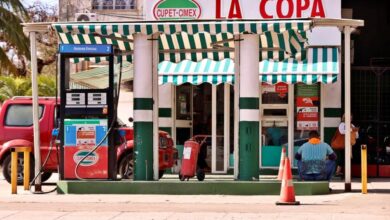Venezuela: decisive week for humanitarian aid
Listen this article
This week will be determinant for the entry of humanitarian aid to Venezuela, while Maduro puts his government's decision to the test

February 23 was the deadline that Juan Guaidó gave for the entry of containers that have the necessary food and medicines for the population, which is mired in a political and social crisis.
Leer en español: Venezuela: semana clave para las ayudas humanitarias
Since he declared himself as interim president of Venezuela, Guaidó has challenged the government of Nicolás Maduro and has counted on not only international support but also that of several organizations that demand the guarantee of fundamental rights in that country. In this regard, he said in recent days that blocking the arrival of this aid could be considered a crime against humanity.
On the other hand, Maduro says that this crisis is the product of a media show "manufactured by the US government of Donald Trump to intervene in Venezuela." As a way to counteract international pressure, Maduro announced on February 14 the arrival of "933 tons of medicines from Russia, China, and Cuba," according to Sputnik.
However, the decision to allow entry falls on the military. For this, Guaidó stressed that "we have placed the dilemma clearly, we are giving an order: allow the entry of humanitarian aid." If not allowed, they would be "sentencing the death of 300,0000 Venezuelans not to attend the emergency," concluded Guaidó according to El Heraldo.
You may be interested in reading: Why has not Italy recognized Guaidó as interim president?
The aid continues to arrive
Despite Maduro's warnings that it will not allow the aid to enter, last weekend two new planes arrived carrying the third shipment to the Camilo Daza airport in the Colombian border city, Cucuta.
Francisco Santos, ambassador of Colombia in the United States, affirmed that "there has been talk of the humanitarian and diplomatic encirclement that has given good results for now. That is the policy that will continue (…) humanitarian aid will enter". In the same way, Iván Duque affirmed that he would continue with the assistance. Through a video call with Juan Guaidó, the president ratified his collaboration: "Colombia is a country that believes in humanitarian aid, that has a sense of humanitarian responsibility with the Venezuelan people, so we will continue working on that line."
#NuevaYork Estamos comprometidos para que llegue la ayuda humanitaria a #Venezuela. El territorio colombiano está abierto para recibir esa asistencia de los países que quieran enviar alimentos y medicinas. #23FAvalanchaHumanitaria#DuqueEnEEUU pic.twitter.com/IuRQPodfs1
— Iván Duque (@IvanDuque) 16 de febrero de 2019
Likewise, the delegation made up of the US ambassador to the Organization of American States (OAS), Carlos Trujillo and the congressmen, Marco Rubio and Marío Díaz Balart, were at the border supporting the coordination of aid at the border. For his part, Rubio said that "soon freedom will return to Venezuela and we will be with you step by step." Similarly, Díaz Balart added that "the only thing that is inevitable is the absolute freedom of the Venezuelan people (…) Maduro is running out of time and they know that this wave is not going to stop ", in statements collected by Univisión.
What is being played in Venezuela?
The current situation for Maduro is compromising. In addition to the international pressure that recognizes and supports Juan Guaidó as interim president of Venezuela, if he let in humanitarian aid it, he automatically recognized Guaidó as president and all his Chavista speech would go to the floor. If not, both the United States and Colombia would accuse him of committing crimes against humanity, something that was discussed at the last meeting of February 13 between the two presidents.
However, the more than 50 countries that recognized Guaidó as president have gone by way of dialogue and always watching over the human rights of Venezuelans who still remain in the country. The point is that this peaceful way can have an end and, like patience, it can be exhausted. At the meeting on February 13, Trump said he was willing to take the final consequences, which means an imminent military intervention to restore the rights of Venezuelans.
However, before a possible attack, the military forces of Venezuela would not be able to respond to the US military, despite having thousands of men and powerful weapons supplied by both Russia and China. Just look at the world ranking of countries with military strength published by the Global Firepower website, in which, and according to La República, Venezuela ranks 46th, while the United States reigns alone at number 1.
LatinAmerican Post | Laura Viviana Guevara Muñoz
Translated from "Venezuela: Semana clave para las ayudas humanitarias"





